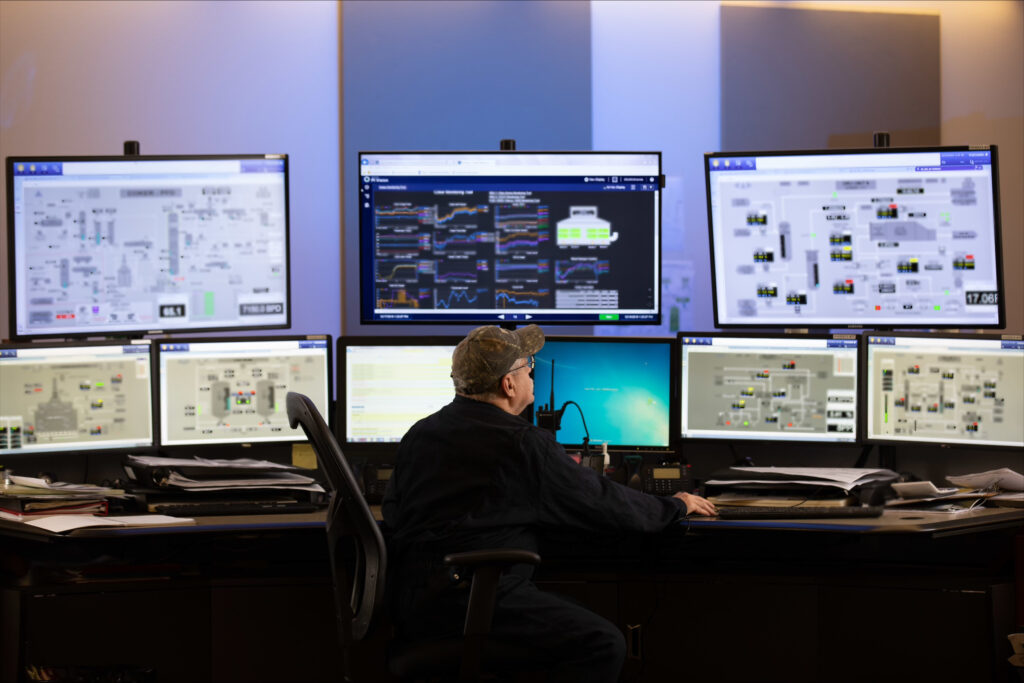AI in the Oil and Gas Industry
The oil and gas industry has not always been quick to adopt new technologies, but 2024 may see a major shift with the growing use of Artificial Intelligence (AI). AI solutions are transforming the way the oil and gas industry works, putting safety first and improving operations, efficiency, and sustainability. With companies like Tasq, AI Driller, Percepto, Grid Edge, Beyond Limits, and many others, the future looks more predictable.
What is AI?
AI is the creation and application of computer systems that can perform tasks that usually need human intelligence. AI processes data, finds patterns, learns from experiences, and plans to solve problems. For the oil and gas industry, AI enables the industry to simplify operations, maximize asset capabilities, achieve sustainable growth, and increase safety standards.
Safety Comes First
Safety is of primary importance to the oil and gas industry, and AI plays a key role in spotting and avoiding risks. AI systems can track and alert potential safety issues in real-time, such as equipment malfunctions, leaks, or unusual operating conditions. This proactive approach allows for early action and preventive steps, lowering the chance of accidents and ensuring the safety of workers. AI not only safeguards these workers but also the communities and environment that could be affected.
Environmental Impact
The oil and gas industry continues to focus on being responsible environmental stewards and minimizing the impact of environmental issues from operations. AI helps the oil and gas industry to maximize efficient drilling operations and minimize waste and emissions. Also, AI-powered predictive analytics can improve energy use, leading to more efficient operations and lower carbon emissions. By leveraging AI, the industry can contribute to a more sustainable future.
Improved Exploration and Operations
The new year brings goals for growth and exploration. AI enhances production processes with advanced algorithms processing large amounts of data. AI can locate potential drilling sites with higher accuracy reducing costs while minimizing environmental impact. AI can identify and implement process improvements to maximize earnings power. AI improves maintenance schedules and extends the life of equipment assets. This proactive approach lowers downtime, boosts operational efficiency, and ultimately leads to significant cost savings. AI’s data driven approach uses algorithms to recognize patterns, trends, and anomalies, allowing companies to make smart decisions regarding production, pricing, and supply chain management. AI drives growth, efficiency, and profitability.
Taking Flight
Drones present an excellent opportunity for the oil and gas industry to enhance its capabilities. These unmanned aerial vehicles (UAVs) are used for different tasks, such as inspecting infrastructure like pipelines, rigs, and storage tanks. Drones with high-resolution cameras and sensors can take detailed images and data, allowing for faster and more precise evaluations of equipment status and discovering and even predicting possible issues. This preventive approach to maintenance helps avoid expensive failures and lowers the need for manual inspections and increases worker safety. Drones make it possible to monitor areas that are far away or hard to reach, improving safety and minimizing the need for human involvement in dangerous environments. Overall, drones have simplified operations, increased safety, and provided cost-efficient solutions for the oil and gas industry.
What are the Risks?
AI can raise a few flags of concern. AI could affect the future of work in the industry and the demand for certain skills and workers. Additionally, there are worries about the dependability and accuracy of AI systems. Data analysis biases could lead to wrong decision-making or safety threats. Regulations, openness, and ongoing supervision will be essential for safe and ethical integration of AI technologies in the oil and gas industry and beyond.
By 2024, AI is set to revolutionize the oil and gas industry in a big way making it more efficient and effective. Asset management will be greatly improved, ensuring optimal utilization and maintenance. Safety procedures will be enhanced, minimizing risks, and ensuring the well-being of workers. Environmental sustainability will be prioritized, with AI helping to reduce the industry’s ecological footprint. Moreover, smart decision-making will be enabled, leading to better outcomes. With the integration of AI technologies, the industry will experience increased efficiency, cost savings, and overall performance improvements. As the oil and gas industry embraces AI, we can expect even more progress and exciting innovations that will shape its future.

